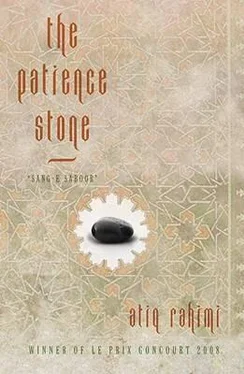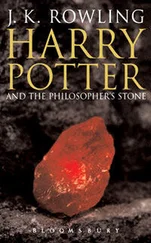
Atiq Rahimi
The Patience Stone
Originally published in French as Syngué sabour
Translated by Polly McLean.
The Koran translated by N. J. Dawood (Penguin Classics 1956, Fifth revised edition 1990).
THIS TALE, WRITTEN IN MEMORY OF N.A.
– AN AFGHAN POET SAVAGELY MURDERED BY
HER HUSBAND-IS DEDICATED TO M.D.
From the body by the body with the body
Since the body and until the body.
ANTONIN ARTAUD
BY KHALED HOSSEINI
It is a vexing fact that women are the most beleaguered members of Afghan society. Long before the arrival of the Taliban, Afghan women struggled for basic rights. Outside of a few urban pockets, the ironclad rule of patriarchal, tribal law has long denied women their right to work, education, adequate health care, and personal independence-all of this made infinitely worse by three decades of war, displacement, and anarchy. Though there have been some improvements in recent years, far too many women continue to languish under the unquestioned, absolute domination of tribal customs that deprive them of meaningful participation in societal life. For far too long, Afghan women have been faceless and voiceless.
Until now. With The Patience Stone, Atiq Rahimi gives face and voice to one unforgettable woman-and, one could argue, offers her as a proxy for the grievances of millions.
The plot could not be simpler. The entire story unfolds in one room, where an unnamed woman nurses her badly injured husband, who lies motionless, wordless, and helpless. As warring factions plunder and pillage on the streets, the woman feeds her husband through a tube. She lubricates his eyes and changes him. And she speaks to him. Tentatively at first, until gradually, the dam ruptures, letting loose a flood of startling confessions. With increasing boldness, the woman reveals how she has resented her husband, her disappointments in him, her fiercely guarded secrets, her desires and hopes, the pains and sorrows she has suffered at his hands. As her husband lies before her like a stone-indeed like the legendary titular stone, which absorbs the anguish of all who confess to it-the woman suddenly finds herself free from all restraint and her monologues reach a fevered pitch. What pours out of her is not only a brave and shocking confession, but a savage indictment of war, the brutality of men, and the religious, marital, and cultural norms that continually assault Afghan women, leaving them with no recourse but to absorb without complaint, like a patience stone.
It is to Atiq Rahimi’s credit that his heroine is no saint suffering quietly in purdah. Nor is she much of a heroine. As the woman’s one-way discourse with her presumably unconscious husband goes on, the layers are peeled back, revelations come forth, and what emerges is the portrait of a complex and nuanced human being. Rahimi’s heroine is brave, resilient, a devout mother, but she is also flawed in fundamentally human ways, a woman capable of lying, manipulating, of being spiteful, a creature that, pushed hard enough, bares her teeth. And her body. Here, Rahimi has broached a great Afghan taboo, the notion of a woman as a sexual being. A pair of passages in this novel may very well generate protest from the more conservative sectors of the Afghan community, but Rahimi is to be applauded for not shying away from the subject. He is to be commended for not turning his heroine into the archetype of the saintly, asexual, maternal figure. Perhaps, writing this novel in French, and not in Dari, made it easier for him. He has been quoted as saying, “… a kind of involuntary self-censorship has come into play when I’ve written in Persian. My acquired language, the one I have chosen, gives me a kind of freedom to express myself, away from this self-censorship and an unconscious shame that dwells in us from childhood.” Whatever the reason, the reader benefits from his unflinching approach.
It is also a testament to Rahimi’s considerable literary skills how vividly the war on the streets is depicted, even though the entire tale unfolds within the confines of a single bedroom. The specter of the unnamed conflict, fought between never named factions, is the third character in the room. Rahimi chooses to not take us to the streets. Instead, we experience war as most helpless civilians do. We hear the sudden bursts of gunfire, the screams, the terrifying silences. We feel the impact of mortar fire when the room shakes and plaster flakes rain down. Despite never taking us to the streets-or perhaps because of it-Rahimi succeeds in making us experience the chaos, the helplessness, the senseless brutality committed with impunity, the random and sudden outbursts of violence that take unsuspecting lives. The years of factional infighting were some of the darkest of the last thirty years in Afghanistan, and in Rahimi’s spare prose, the era comes to life to devastating effect.
The Patience Stone, winner of the prestigious Goncourt Prize in France, is a deceptively simple book, written in a spare, poetic style. But it is a rich read, part allegory, part a tale of retribution, part an exploration of honor, love, sex, marriage, war. It is without doubt an important and courageous book. In this reader’s view, though, this novel’s greatest achievement is in giving voice. Giving voice to those who, as the fable goes, suffer the most and cry out the least. Rahimi’s nameless heroine is a conduit, a living vessel for the grievances of millions of women like her, women who have been objectified, marginalized, scorned, beaten, ridiculed, silenced. In The Patience Stone, they have their say at last.
Somewhere in Afghanistan or elsewhere
The room is small. Rectangular. Stifling, despite the paleness of the turquoise walls, and the two curtains patterned with migrating birds frozen mid-flight against a yellow and blue sky. Holes in the curtains allow the rays of the sun to reach the faded stripes of a kilim. At the far end of the room is another curtain. Green. Unpatterned. Concealing a disused door. Or an alcove.
The room is bare. Bare of decoration. Except between the two windows where someone has hung a small khanjar dagger on the wall, and above the khanjar a photo of a man with a moustache. He is about thirty years old. Curly hair. Square face, bracketed by a pair of neatly tended sideburns. His black eyes sparkle. They are small, separated by a hawklike nose. The man is not laughing, and yet seems as if he is holding back a laugh. This gives him a strange expression, that of a man inwardly mocking those who look at him. The photo is in black and white, hand-colored in drab tones.
***
Facing this photo, at the foot of a wall, the same man-older now-is lying on a red mattress on the floor. He has a beard. Pepper and salt. He is thinner. Too thin. Nothing but skin and bones. Pale. Wrinkled. His nose more hawklike than ever. He still isn’t laughing, and still looks strangely mocking. His mouth is half-open. His eyes, even smaller now, have retreated into their sockets. His gaze is fixed on the ceiling, on the exposed, blackened, rotting beams. His arms lie passive along his sides. Beneath his translucent skin, the veins twine around the jutting bones of his body like sleeping worms. On his left wrist he wears a wind-up watch, and on his ring finger a gold wedding band. A tube drips clear liquid into the crook of his arm from a plastic pouch attached to the wall just above his head. The rest of his body is covered by a long blue shirt, embroidered at the collar and cuffs. His legs, stiff as two stakes, are buried under a white sheet. A dirty white sheet.
Читать дальше













